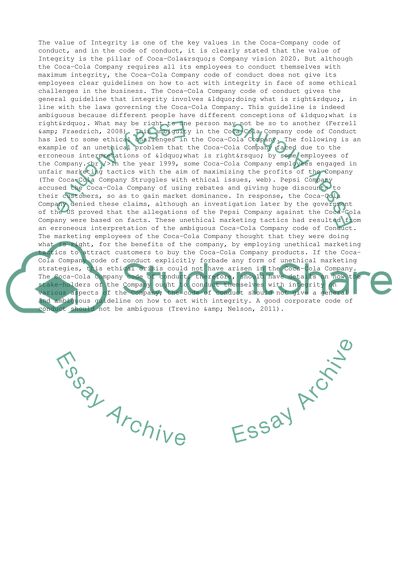Cite this document
(Ethics Essay Example | Topics and Well Written Essays - 3000 words, n.d.)
Ethics Essay Example | Topics and Well Written Essays - 3000 words. https://studentshare.org/business/1825583-3-part-project-part-1-select-a-code-of-conduct-to-revise-part-2-develop-a-revised-code-of-conduct-part-3-prepare-a-power-point-presentation
Ethics Essay Example | Topics and Well Written Essays - 3000 words. https://studentshare.org/business/1825583-3-part-project-part-1-select-a-code-of-conduct-to-revise-part-2-develop-a-revised-code-of-conduct-part-3-prepare-a-power-point-presentation
(Ethics Essay Example | Topics and Well Written Essays - 3000 Words)
Ethics Essay Example | Topics and Well Written Essays - 3000 Words. https://studentshare.org/business/1825583-3-part-project-part-1-select-a-code-of-conduct-to-revise-part-2-develop-a-revised-code-of-conduct-part-3-prepare-a-power-point-presentation.
Ethics Essay Example | Topics and Well Written Essays - 3000 Words. https://studentshare.org/business/1825583-3-part-project-part-1-select-a-code-of-conduct-to-revise-part-2-develop-a-revised-code-of-conduct-part-3-prepare-a-power-point-presentation.
“Ethics Essay Example | Topics and Well Written Essays - 3000 Words”. https://studentshare.org/business/1825583-3-part-project-part-1-select-a-code-of-conduct-to-revise-part-2-develop-a-revised-code-of-conduct-part-3-prepare-a-power-point-presentation.


